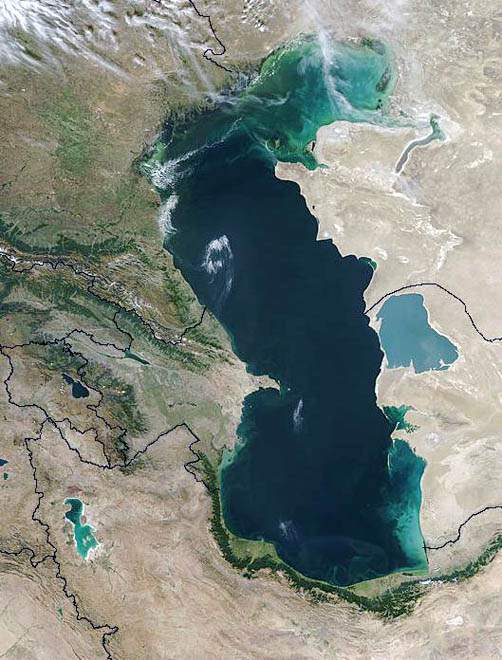Turkmenistan, Ashgabat, Aug.26 / Trend, H. Hasanov /
Globalization of economic development of the Caspian littoral states and varying the Caspian Sea level requires a joint solution on a number of ecological problems, an article published on the official "Neutral Turkmenistan" newspaper reported.
Solutions include "preventing Caspian Sea pollution which results from dumping untreated sewage by enterprises into the sea, flooding oil and gas fields into the coastal zone, and reducing bio-resources into the Caspian Sea as a result of irregular use", the candidate of biological sciences Bibi Polatova writes.
The article dedicated was to Ashgabat's initiatives which are aimed at developing the constructive cooperation of littoral states in conserving the Caspian Sea's ecosystem. These proposal will be announced during the forthcoming 66th Session of the UN General Assembly, to open on Sept. 13.
"An inter-regional ecological dialogue, designed to become an effective mechanism for establishing mutually beneficial cooperation, will contribute to improving the ecological situation in the Caspian Sea and its preservation as a unique water basin", the article reported.
The author writes that "today there is not enough information on the pollution level of the Caspian Sea and on the content of chemical substances of anthropogenic origin due to lack of an organized surveillance system in the entire water area".
In this regard, the organization of ecological monitoring and sea pollution prevention systems are required.
He also stressed that "the Turkmen sector of the Caspian Sea is now considered the cleanest, and it is the result of intentional work to preserve and restore the environment."
She believes that a number of ecological projects implemented at the Turkmenbashi oil refinery can serve as an example for proper ecology. In particular, they include repair work on existing and new sewage treatment facilities, commissioning of wells to extract oil products from groundwater, reconstruction of facilities on treatment of industrial wastes of tank farms, pumping out oil products from coastlines, and other projects.
The article stressed that the Caspian Sea basin has at present become an arena for large-scale development of natural resources.
"The exploitation of natural coastal zone and marine shelf resources without ecological requirements is fraught with severe water and surface ecosystems pollution and reduction in bio-resources, and can lead to degradation of the ecosystem and deterioration of the population's socio-economic conditions."
The Caspian Sea is the world's largest intra-continental basin that is not connected with the oceans; it has a climate-forming significance.
In addition, the Caspian Sea has a variety of ecosystems that are rich in natural resources that have not yet been fully studied.
The Caspian Sea is the most important migration route and habitat for waterfowl and shorebirds. Shallow water and coastal wetlands are highly productive areas and important habitat for marine organisms: fish, seals, and birds.
The Turkmen scientist explains that "the Caspian Sea has a very delicate ecosystem.
Over the last decade, anthropogenic and biochemical factors deteriorated the sea's ecosystem as a whole."
Polatova believes that there are also a number of underlying factors for the pollution of the Caspian Sea. They include the development of hydrocarbon reserves in the sea and adjacent areas, high population density and industry, intensive agricultural development of lands, valleys, and falling rivers, the lack of a clearly defined geochemical barrier - a "sea-river", and others.






